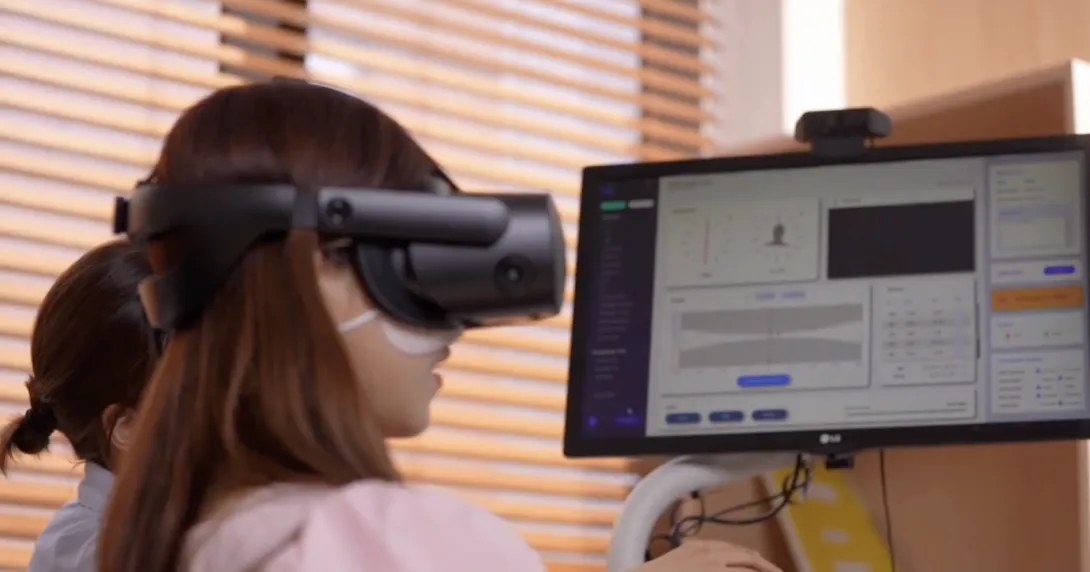
Photo: NeuroEars/YouTube
A Korean startup has received approval from the United States for its virtual reality-based vertigo diagnostic device.
In late August, NeuroEars received the US Food and Drug Administration's 510(k) clearance for its AI-based nystagmus classification system.
The product, called NeuroEars Anna, utilises a VR headset to conduct an all-in-one visual, eye movement, and vertigo test, powered by an eye tracking algorithm.
The startup claims that the device can perform the same vestibular-ocular reflex test for diagnosing recurrent vertigo as conventional nystagmometers.
Founded in 2021, NeuroEars is a subsidiary of Hallym University's venture capital firm, Hallym University Technology Holdings.
WHY IT MATTERS
This US FDA approval facilitates NeuroEar's commercial entry into the US market. Its vertigo diagnostic device has been introduced to over a hundred hospitals in Korea, with proof of concepts completed as well in other countries, such as Vietnam and Qatar.
The Korean startup also plans to integrate its VR-based solution into AI-based diagnostic assistance systems and rehabilitation programmes.
MARKET SNAPSHOT
The US has already designated a wearable headband for the treatment of chronic vertigo as a breakthrough device, though it has yet to be cleared for commercial use. Developed by Otolith Labs, the device provides vestibular resonance therapy via vibrations.
Meanwhile, recently published studies in Japan and South Korea have also incorporated eye tracking technologies to enable AI-powered diagnoses of autism and attention deficit hyperactivity disorder.


